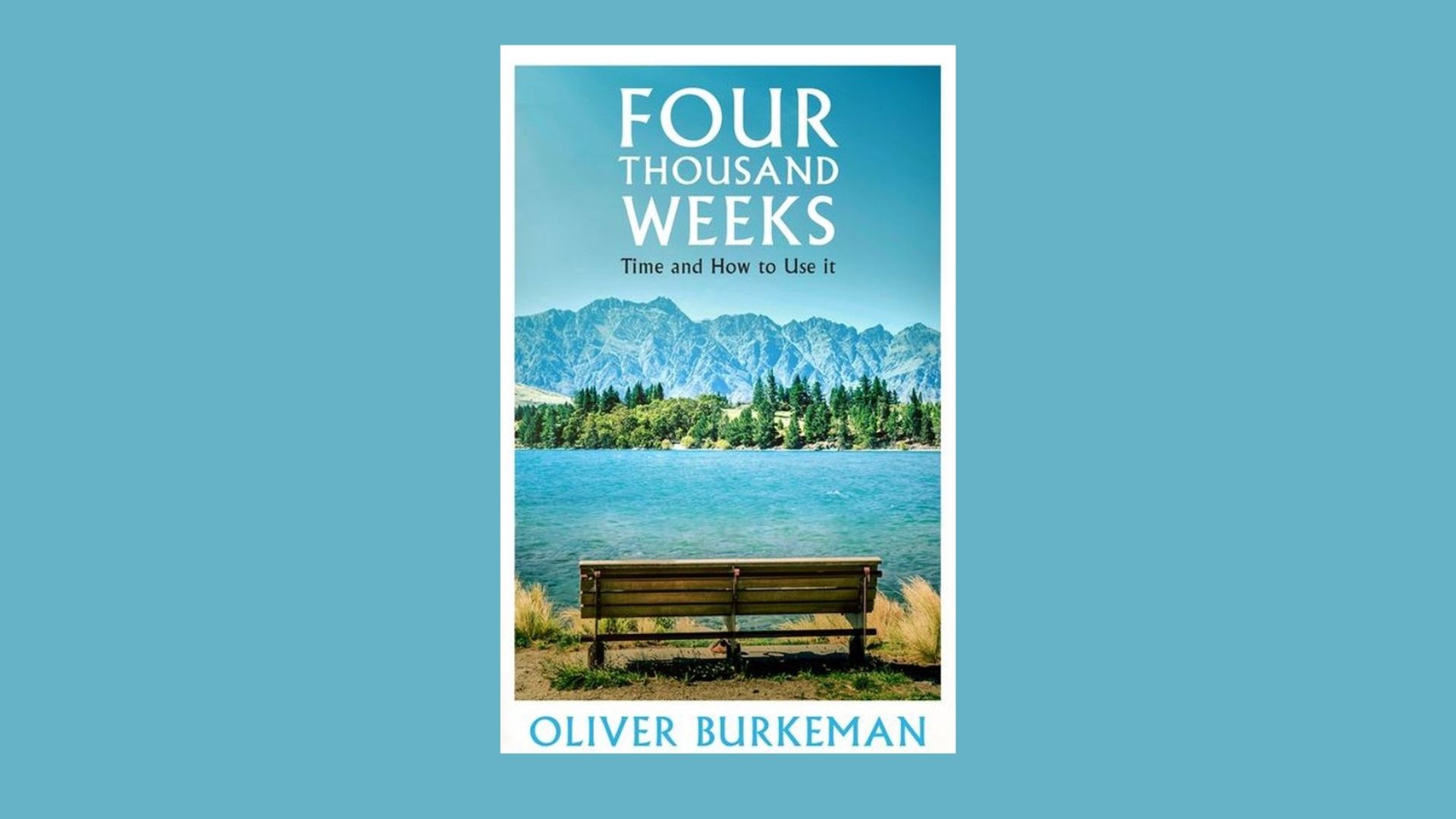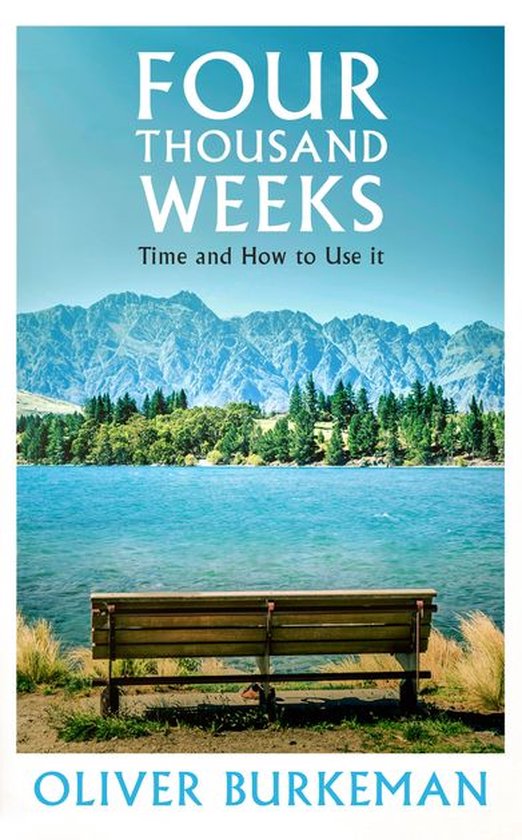
Check, check, check and check. Does this sound familiar to my fellow to-do list community? Well, our attempt at being productive may well be a one-way ticket to a productivity-blackhole that doesn’t really improve our life at all. Why? For one, getting more done is just a way of begging for more to do, as Burkeman remarks in his new book – Four Thousand Weeks – Time Management for Mortals.
On average, each and every one of us will have four thousand weeks before we say our goodbyes to this world. In other words, our time is limited and therefore precious. In turn, we – most of the time – try to use it wisely by cramming every possible hour with something to do, whether that is answering another email, reading another page of that book or whatever it is next on your to-do list. But it doesn’t matter how many ticks we put next to those completed tasks, there is always another empty box waiting for us to tick-off and we will never ever get to the last one, ever.
Yet, we see books, blogs, and vlogs producing all these productivity techniques we can incorporate into our daily routine that is supposed to make life more manageable and somehow fulfilling. Is that why we’re obsessed with being productive? Perhaps, but does productivity equal fulfilment in life? The question of what we are trying to achieve by ticking off these boxes and cramming in as much as we can into a day as possible is one that four thousand weeks attempts to answer.
As a former productivity guru who spent more than a decade writing “this column will change your life” for the Guardian which essentially advocates time management techniques and mental wellbeing. For a long time Burkeman was convinced that there were routines or certain habits people could develop to make the most use of the limited time we had. He was certain that his life didn’t have “the perfect flow” simply because he hadn’t found the “perfect” time management tool yet and once he does, life would mean achieving everything he had ever dreamt of. This is until plans never quite went as planned and one day, he realised that no technique or method made him feel the slightest in control or on top of things and time will never just be there for him to use efficiently. Burkemam reasoned that contemporary life sees time not as something we just live in – which is all it is, but as a resource to be used efficiently in order not to be wasted. Thus, he urges us to question why our actions reflect time as something we possess and get to “use” when in reality that is not the case.
One aspect in the short span of mortal life Burkeman emphasised which I found intriguing was the importance of finding focus in life. Burkeman described the modern stimulus-packed world as an “existential overwhelm” with far too many things that seem worth doing and suggests learning to embrace the joy of missing out. Because ultimately, missing out is guaranteed. We will always miss out on something in every decision we make and we will never be able to do everything we would like to, but precisely because of this “missing out” each and every choice is meaningful. Procrastination is also unavoidable, though we can and do get better at ignoring the right things and focusing on what matters to us the most.
Burkeman is by all means not implying that being busy or productive is bad, but thinking that you are able to achieve more than you physically and mentally are able to is when you have been sucked into that blackhole. At the end of the book, he offers 10 tools worth reading for internalising the empowering truth that the time we have on earth and our control over it is incredibly limited.
Although I did find the book to drag on slightly in some chapters, it gave a thoroughly refreshing perspective on productivity aka managing life. Overall, I really enjoyed reading it, partly because many ideas within the book challenged my own. It was an especially interesting read for someone like myself who does and loves most of the standard productivity tricks, in the hope that if I swear by them, I will be able to finish the enormous amount on my plate quicker and be closer to getting dessert served – which unfortunately will not happen unless the menu is altered.
To end this review, I want to share one of my favourite quotes from the book to give you a sneak peek without spoiling the book.
“The fundamental problem is that this attitude toward time sets up a rigid game in which it’s impossible ever to feel as though you’re doing well enough. Instead of simply loving our lives as they unfold in time – instead of just being time, you might say – it becomes difficult not to value each moment primarily according to its usefulness for some future goal, or for some future oasis of relation you hope to reach once your tasks are finally “out of the way”.
Available at your local book store or online, starting from €29,99.

Check, check, check and check. Does this sound familiar to my fellow to-do list community? Well, our attempt at being productive may well be a one-way ticket to a productivity-blackhole that doesn’t really improve our life at all. Why? For one, getting more done is just a way of begging for more to do, as Burkeman remarks in his new book – Four Thousand Weeks – Time Management for Mortals.
On average, each and every one of us will have four thousand weeks before we say our goodbyes to this world. In other words, our time is limited and therefore precious. In turn, we – most of the time – try to use it wisely by cramming every possible hour with something to do, whether that is answering another email, reading another page of that book or whatever it is next on your to-do list. But it doesn’t matter how many ticks we put next to those completed tasks, there is always another empty box waiting for us to tick-off and we will never ever get to the last one, ever.
Yet, we see books, blogs, and vlogs producing all these productivity techniques we can incorporate into our daily routine that is supposed to make life more manageable and somehow fulfilling. Is that why we’re obsessed with being productive? Perhaps, but does productivity equal fulfilment in life? The question of what we are trying to achieve by ticking off these boxes and cramming in as much as we can into a day as possible is one that four thousand weeks attempts to answer.
As a former productivity guru who spent more than a decade writing “this column will change your life” for the Guardian which essentially advocates time management techniques and mental wellbeing. For a long time Burkeman was convinced that there were routines or certain habits people could develop to make the most use of the limited time we had. He was certain that his life didn’t have “the perfect flow” simply because he hadn’t found the “perfect” time management tool yet and once he does, life would mean achieving everything he had ever dreamt of. This is until plans never quite went as planned and one day, he realised that no technique or method made him feel the slightest in control or on top of things and time will never just be there for him to use efficiently. Burkemam reasoned that contemporary life sees time not as something we just live in – which is all it is, but as a resource to be used efficiently in order not to be wasted. Thus, he urges us to question why our actions reflect time as something we possess and get to “use” when in reality that is not the case.
One aspect in the short span of mortal life Burkeman emphasised which I found intriguing was the importance of finding focus in life. Burkeman described the modern stimulus-packed world as an “existential overwhelm” with far too many things that seem worth doing and suggests learning to embrace the joy of missing out. Because ultimately, missing out is guaranteed. We will always miss out on something in every decision we make and we will never be able to do everything we would like to, but precisely because of this “missing out” each and every choice is meaningful. Procrastination is also unavoidable, though we can and do get better at ignoring the right things and focusing on what matters to us the most.
Burkeman is by all means not implying that being busy or productive is bad, but thinking that you are able to achieve more than you physically and mentally are able to is when you have been sucked into that blackhole. At the end of the book, he offers 10 tools worth reading for internalising the empowering truth that the time we have on earth and our control over it is incredibly limited.
Although I did find the book to drag on slightly in some chapters, it gave a thoroughly refreshing perspective on productivity aka managing life. Overall, I really enjoyed reading it, partly because many ideas within the book challenged my own. It was an especially interesting read for someone like myself who does and loves most of the standard productivity tricks, in the hope that if I swear by them, I will be able to finish the enormous amount on my plate quicker and be closer to getting dessert served – which unfortunately will not happen unless the menu is altered.
To end this review, I want to share one of my favourite quotes from the book to give you a sneak peek without spoiling the book.
“The fundamental problem is that this attitude toward time sets up a rigid game in which it’s impossible ever to feel as though you’re doing well enough. Instead of simply loving our lives as they unfold in time – instead of just being time, you might say – it becomes difficult not to value each moment primarily according to its usefulness for some future goal, or for some future oasis of relation you hope to reach once your tasks are finally “out of the way”.
Available at your local book store or online, starting from €29,99.




